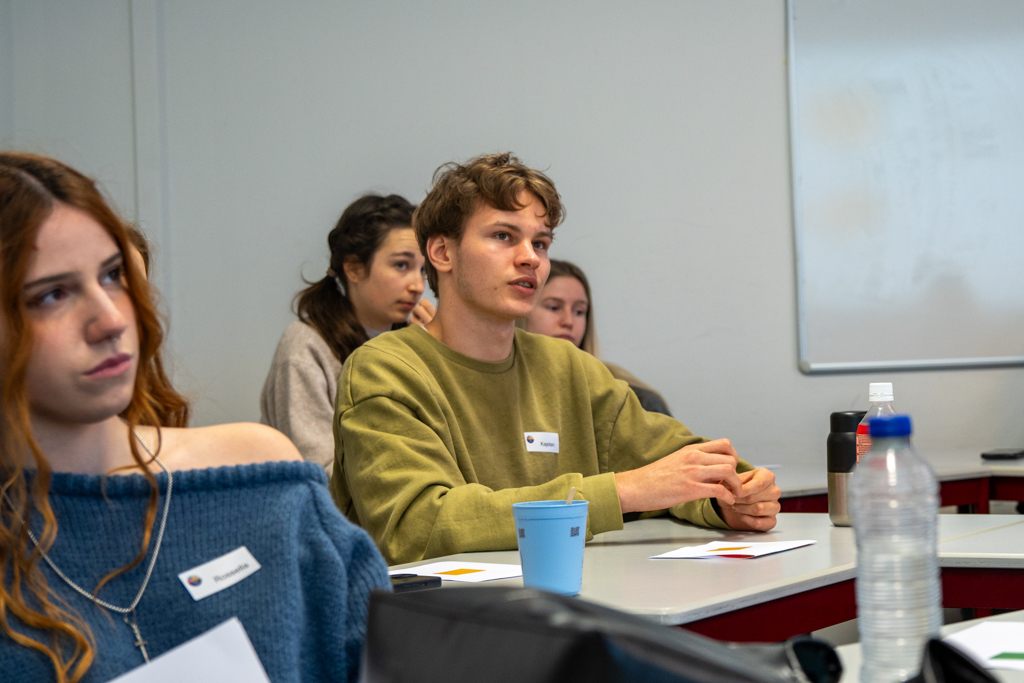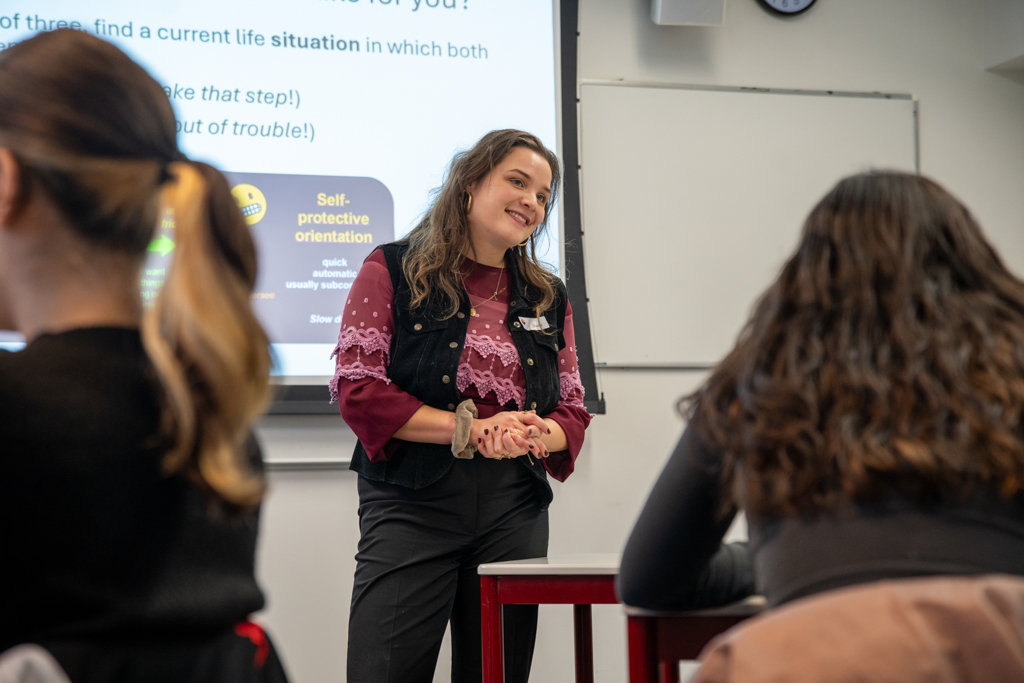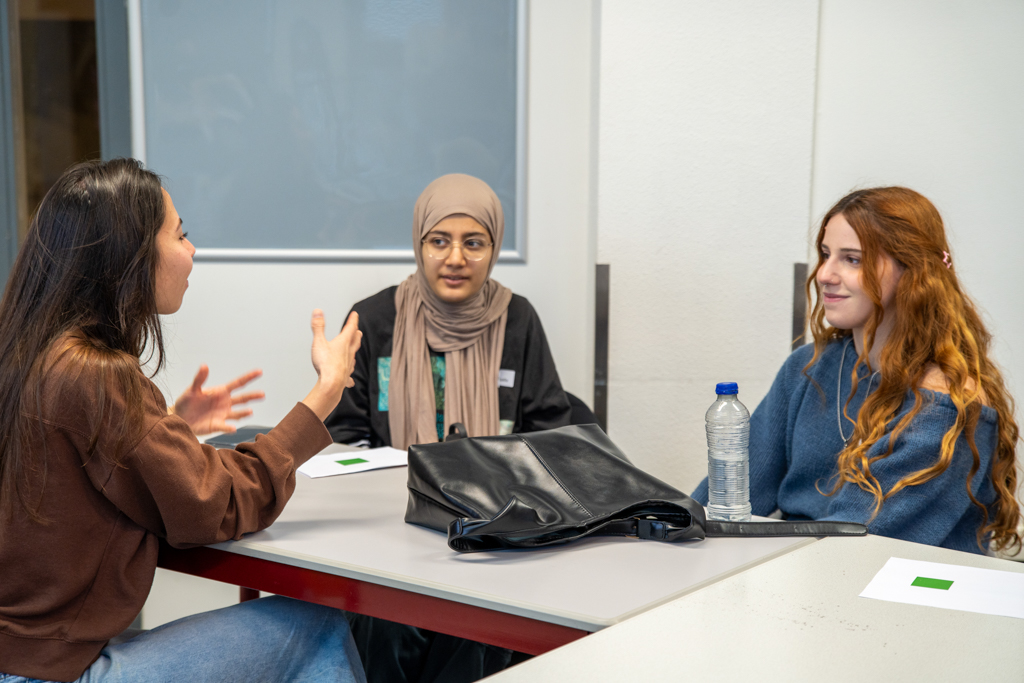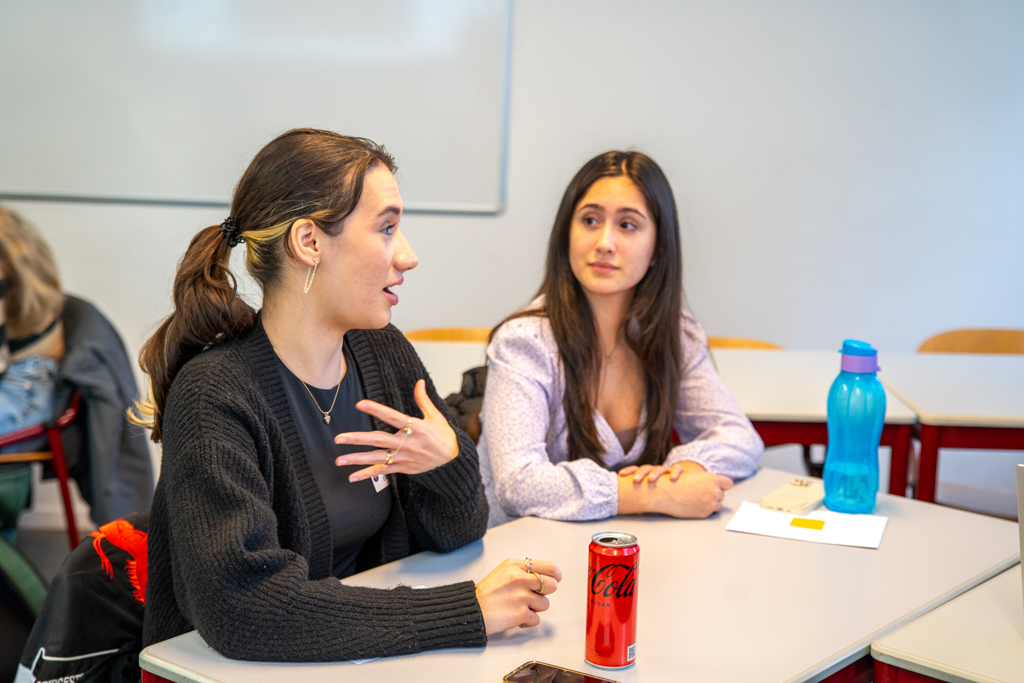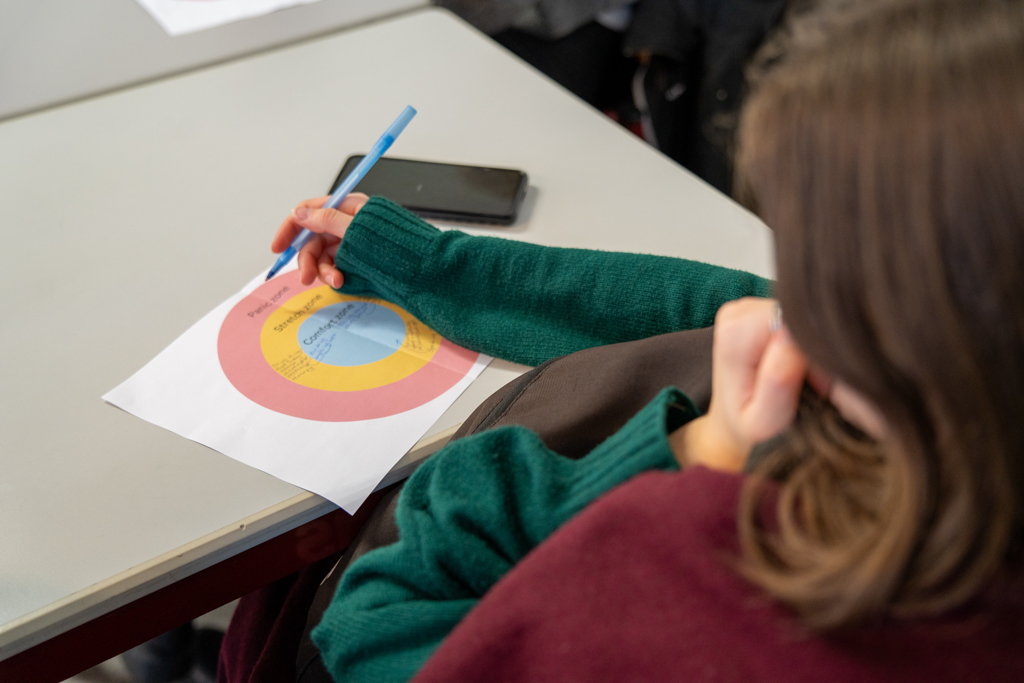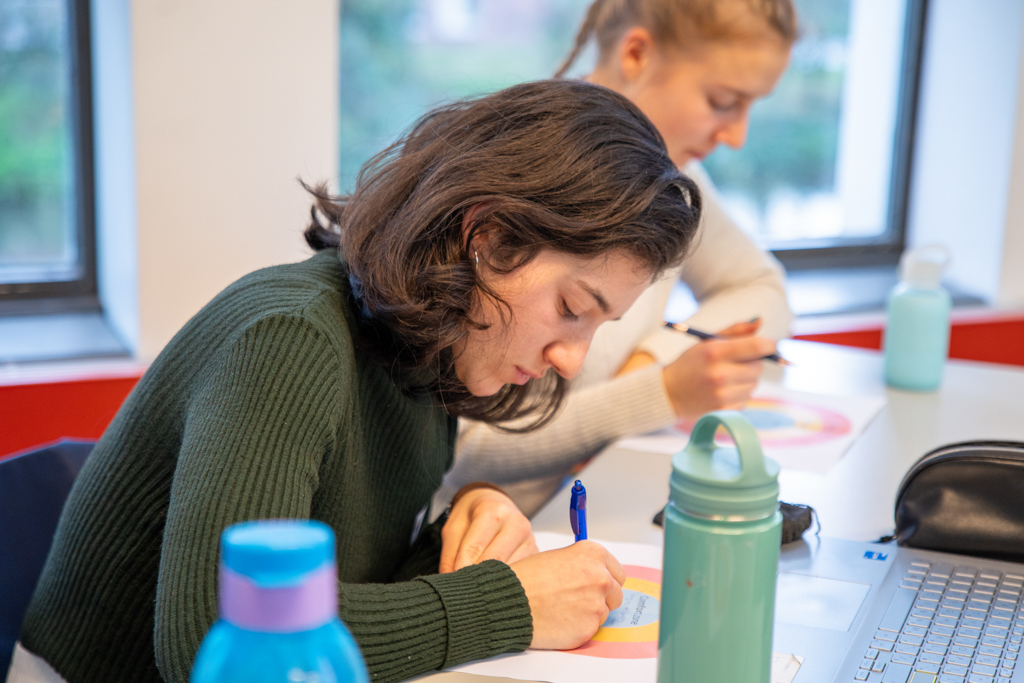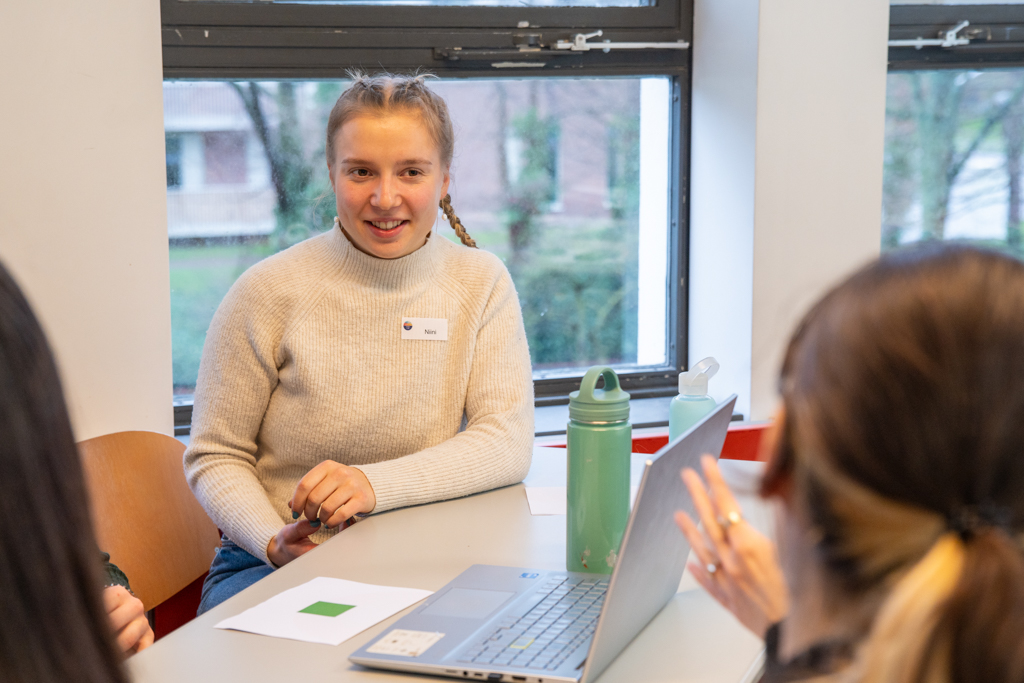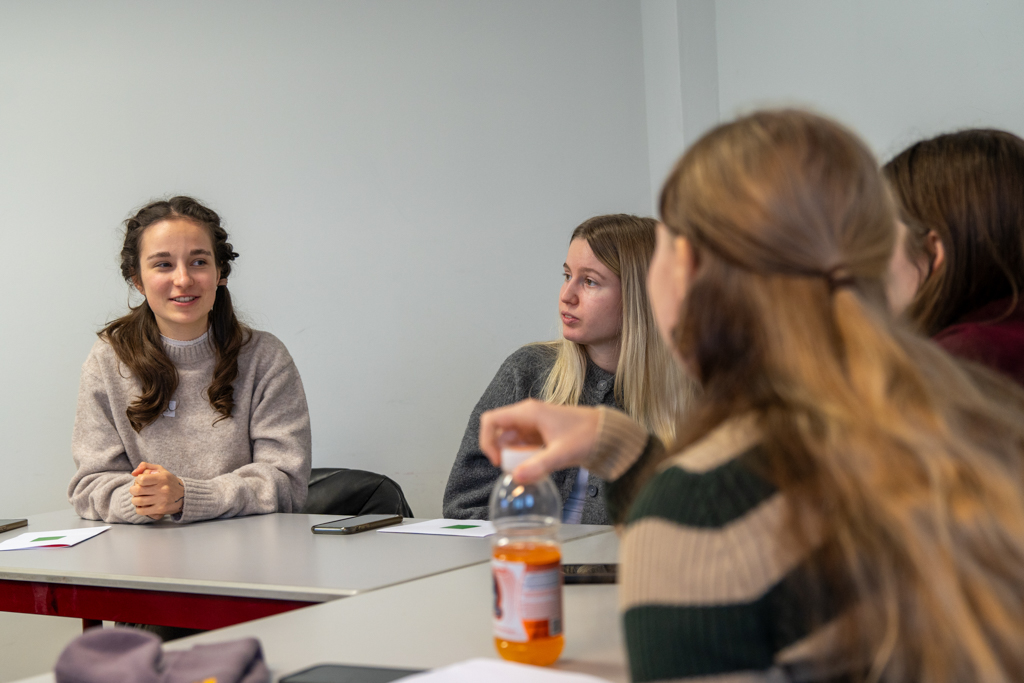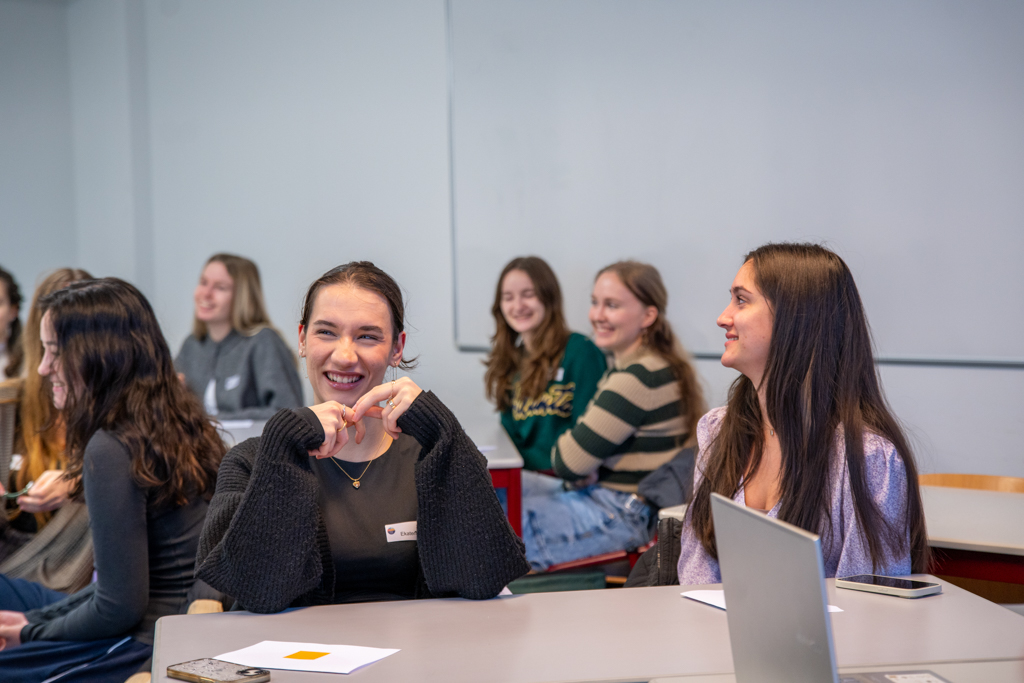
With the Personal Professional Skills Lab, you learn to recognise your inner critic
Student wellbeing image: Anna Loh
What truly matters to you? And how do you take steps towards your goals, even when it feels daunting? In the introductory module of the Personal Professional Skills Lab, first-year students discuss these questions. ‘Ultimately, everyone struggles with the same things.’
First-year Psychology students from the international programme cautiously trickle into the classroom. Some are carrying heavy suitcases, which they skilfully manoeuvre through the narrow spaces between desks. These are the final days of exam week and the lead-up to the long-anticipated Christmas break, for which many are, to put it mildly, desperate. A few students will board a train or plane later tonight to spend the holidays with family, but before that, they are attending this training session of the Personal Professional Skills Lab. This module, introduced this year for students of the Faculty of Social and Behavioural Sciences, focuses on personal development, effective studying, and career perspectives.
Personal Professional Skills Lab in brief
The Personal Professional Skills Lab brings together the resources offered by the student support departments at the Faculty of Social Sciences (FSW). You can attend workshops, seminars, and courses provided by the Career Service, POPCorner, the Honours College, and the Personal Development Centre—all free of charge.
By participating in several of these workshops during your bachelor’s programme and recording your learning process in the online system www.learningmyway.nl, you can earn the Personal Professional Skills Certificate. Read more about PPSL.
These are topics that resonate strongly with all the students in this group, trainer and coach Thalia Thomassen emphasises. Thalia has been with the Personal Development Centre for four years and is leading today’s workshop. Beforehand, the students filled in what excites them and what worries them. These themes are now displayed on the board. Academic success, social connections, and relaxation are deemed important. However, it is precisely these areas—study performance and social life—that cause them concern: 'What if I’m not capable?' And 'what if I don’t fit in?'
Together with the students, Thalia explores how our motivation system works. For instance, why is it that you’re excited about a new part-time job initially but then decide against applying at the last moment? She also discusses the comfort zone: while it feels safe and familiar, why is it beneficial to step out of it occasionally, and how can you do so?
What have students Ekaterine and Elitsa taken away from this workshop?
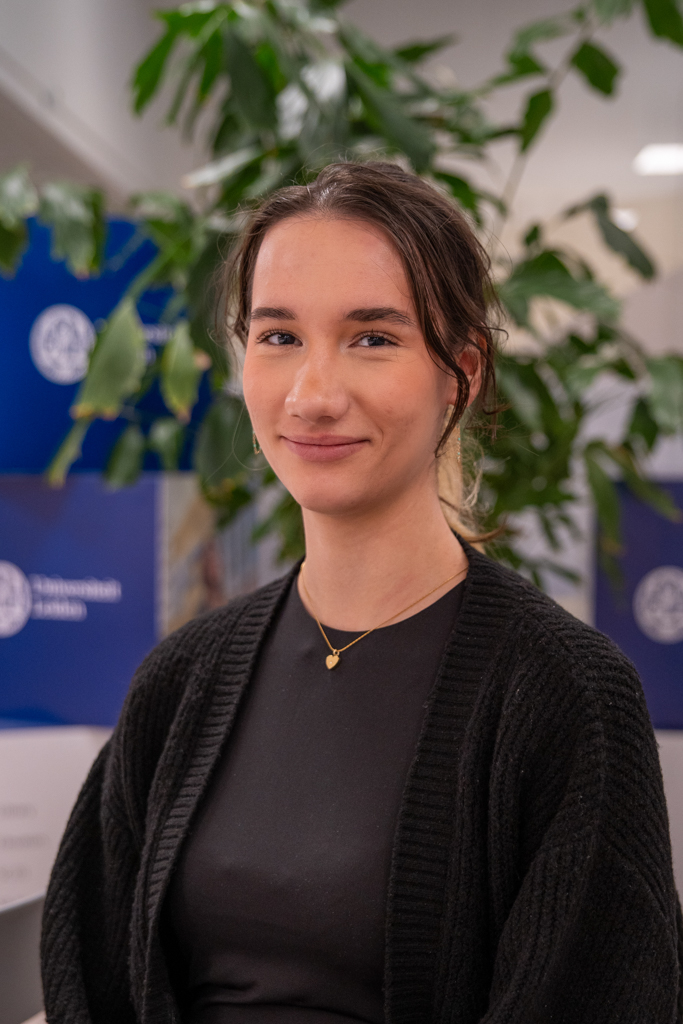
'Whatever you’re struggling with, you’re not alone'
I came in, honestly, with pretty low expectations. Workshops on personal development can sometimes feel like they’re trying to steer you in a specific direction—like when you work for a company and the manager wants you to become more efficient. But this workshop focused much more on you as a person, as an individual. I also appreciated how interactive it was; it went beyond just dry theory.
You get to know your classmates in a new way, outside the academic setting. What I learned from that: no matter how different people seem, everyone is ultimately grappling with the same kinds of challenges. Whatever you’re struggling with, you’re not alone. For instance, I found the model we studied—about self-protective versus self-transcending behaviours—really insightful and could recognise its principles in my own life. Starting every new part-time job, I’ve always felt anxious about the unknown.
I’ve also become curious about the other modules, like those on effective studying and time management. Maybe in the future, I’ll try one on career perspectives—but that feels a bit too soon for me right now.’
Ekaterina Dimitrova, first year student International Bachelor Psychology
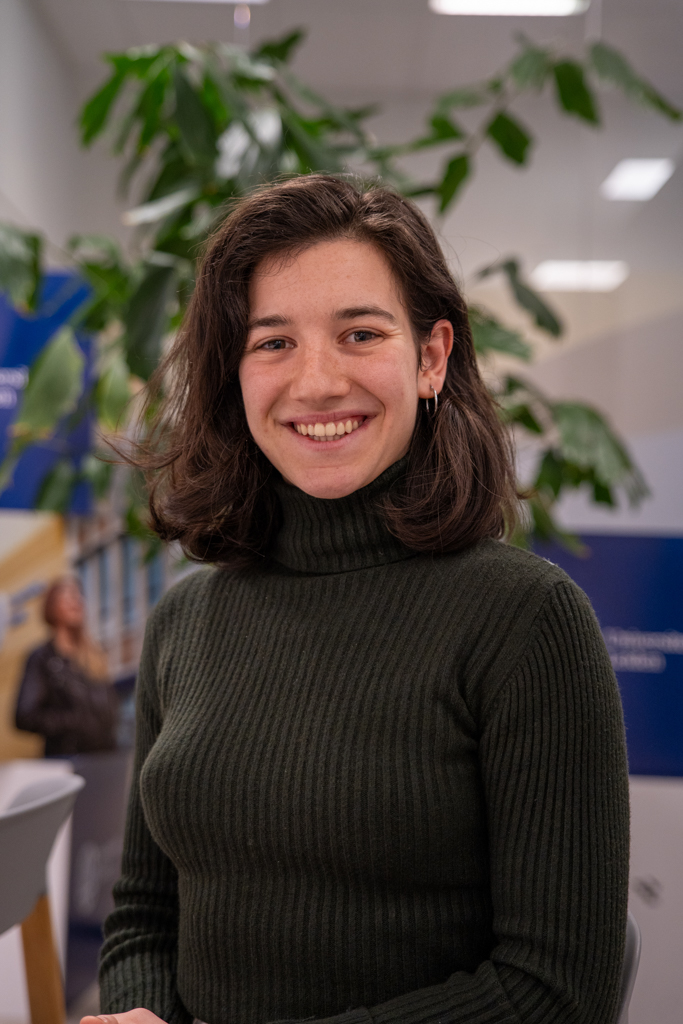
'Feeling anxious or frustrated can be valuable'
‘I think it’s important to pause and reflect on how you approach specific aspects of your life. I had come across personal development modules before through the POP Corner and Instagram, so I had a rough idea of what to expect from this session, but I wasn’t entirely sure which direction it would take.
I enjoyed the interactive elements the most. Normally, you don’t openly discuss how hard it is to overthink everything, but because everyone shared their insecurities, it didn’t feel so vulnerable to talk about it. That said, I didn’t agree with everything. For instance, the CSP model—a diagram showing the comfort zone, stretch zone, and panic zone. I don’t think it’s necessarily a bad thing to end up in your panic zone or to feel anxious or frustrated. Those moments can be valuable too; they teach you about your boundaries.
One module from the PPSL caught my eye: how to find a job that suits you. I have some ideas about my future, but some of my plans still feel vague or far-fetched. I’d like to learn how to structure them better.’
Elitsa Davidova, first year student International Bachelor Psychology

